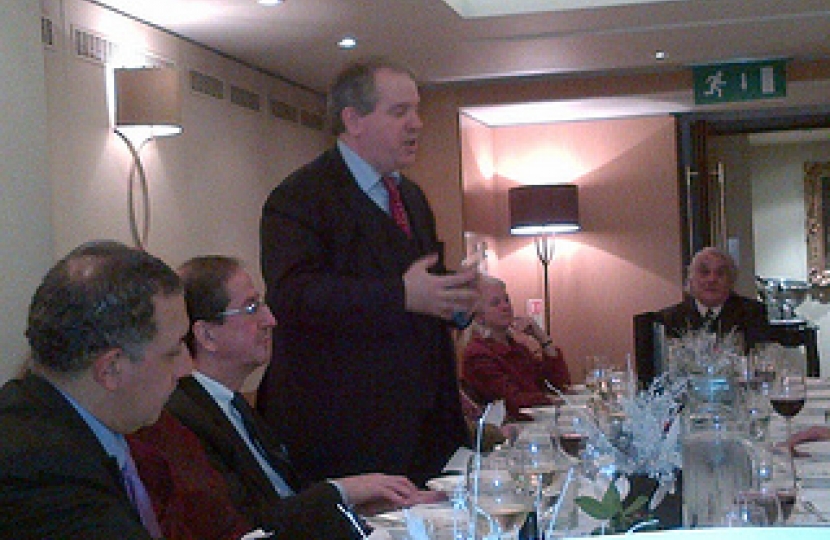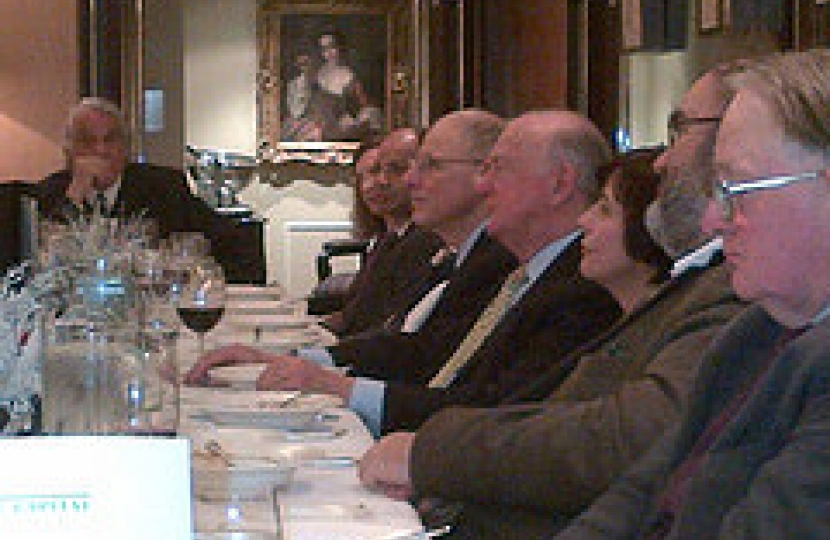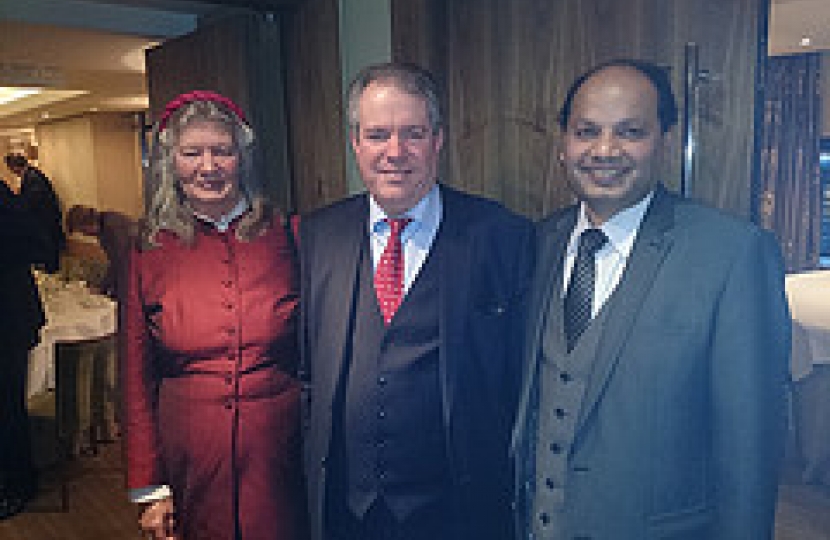Following a wide-ranging and fascinating speech, these are a few of the key policies favoured by Charles:
- More efficient and cost-effective interpretation in the European Parliament
The EU has 28 Member States and 24 official languages. The UN, with 193 Member States, operates with just six, and the 47-Member-State Council of Europe has just two official languages. Working towards a more efficient and cost effective interpretation process is of course welcome, but the recommendations do not offer the radical solution which would be the logical step for an expanding supranational institution such as the EU. Limiting the number of working languages to three – namely French, German and English, and embracing this solution would not be as radical as many in this House would portray it as being. In the majority of cases this is already de facto for many of my colleagues, who make speeches happily in one of those languages in the plenary. Adopting this officially would only serve to bring more transparency and dynamism to the workings of Parliament and send a signal to EU citizens that the EU is serious in its aim to make efficient and budgetary savings. This is certainly something which would be welcome in the UK and by my own London constituents. (Delivered in Plenary on 10 September 2013)
- Common foreign and security policy
"I am a staunch defender of national sovereignty and the right of Member States to hold the reins over their own foreign policy and defence, acting in their own national interests. But this does not mean that the United Kingdom – my country – cannot support a common foreign security policy of the EU where it adds clear value.
The European Union is a powerful bloc of liberal democracies. Although our domestic politics may differ substantially, in our dealings with the outside world our similarities are usually more evident and outweigh our differences. Lady Ashton, your recent achievement in bringing together the Kosovo and Serbian leaders in their landmark agreement demonstrates the potential for a CFSP at its best, particularly given the fact that the EULEX mission in Kosovo was very helpful in re-establishing the rule of law. The EU training missions in Uganda and Mali are also particular successes, as is the EU-NAVFOR Atalanta mission, which has done so much in the Indian Ocean to reduce piracy off the coast of Somalia.
As rapporteur both for the Horn of Africa and for the human rights report on the Sahel, which went through this week in the House, I hear first hand from regional actors how valued the EU contribution is and how effective we can be when we coordinate our soft and hard power strategies. This applies to sticks as well as carrots, as evidenced by the EU-led sanctions now forcing President Rouhani of Iran to the negotiating table, and to the blacklisting of Hezbollah, which sends the right message about terrorism internationally.
Nevertheless, one real problem that my group has with the Brok CFSP report is its continued insistence on a permanent EU seat at the UN Security Council, which the United Kingdom cannot accept. In a sense, this is the key issue. Foreign, security and defence policy can be coordinated, where appropriate, but ultimately, control must be intergovernmental. Where collective decisions are being taken, they must be taken unanimously. We can support them in that case, but we cannot allow a situation to develop whereby small – or, for that matter, large – countries, such as my own, are forced to submit to policies and interests that they do not share with the others.
We have more reservations as a group over the CSDP, given that the EU has only two major military powers – France and the UK. But, where CSDP missions can coexist effectively with NATO without duplication, we are also happy to endorse a collective and constructive approach." (Delivered in Plenary - 23 October 2013)
- Implementation of the Common Security and Defence Policy
"As a Euro-realist, of course I accept the reality of the CSDP and the need to engage with it, although many in my own national political party are deeply hostile to the very concept. In my view, the CSDP must always remain subject to unanimity in the Council. I believe that constructive engagement is the way forward, partly because – as was pointed out in the debate – France insists on it as one of only two European major military powers and as a condition of rejoining NATO and its command and control structures.
One of my major areas of concern is the risk of duplication of effort in a climate of limited resources in the defence-spending sector, where concepts like NATO, smart defence and the CSDP’s pooling and sharing are being developed – rightly – to save on costs to national budgets. It is also important to avoid decoupling of the European Union’s defence efforts from those of the USA and Canada, with whom we are negotiating free trade agreements at the moment, and the TTIP hopefully in the future.
Nevertheless, I am convinced that EUNAVFOR ATALANTA has been a success story – and I drafted a report on this in the Horn of Africa for the Parliament last year – in fighting piracy. The EU training missions in Uganda and Mali have also been very helpful in the combat against Jihadi terrorism, but the jury regrettably is still out on certain civilian missions like EULEX in Kosovo. However, you can rest assured that we in the ECR will continue to take our security role with national parliaments and scrutiny over the CSDP very seriously in future." (Delivered in Plenary - 20 November 2013)
CHARLES TANNOCK MEP
Charles was educated at Bradfield College, Berks followed by Balliol College, Oxford and the Middlesex Hospital Medical School, London. He is a Member of the Royal College of Psychiatrists. Before being elected to the European Parliament in 1999, Charles worked for several years as a Consultant Psychiatrist in London and was a Senior Lecturer at University College Hospital. Although he had successfully combined political work with medicine while acting as a Councillor in his local Earls Court ward (1998-2000), he was obliged to give up his practice on taking office in Brussels.
Having spent his childhood living in various European cities, Charles is fluent in Portuguese, Spanish, French and Italian. He has travelled extensively in South America and Eastern Europe and written political pamphlets as well as extensive publications in the medical literature.
He is involved politically in a number of cross party Parliamentary groups working to support sufferers from epilepsy, cervical cancer and mental illness. He is a member of the European Cancer Patient Coalition and the EP Intergroup on Animal Welfare, a former Vice-President of the European Friends of Israel and a member of Friends of Tibet. Charles was Founder of the EP Friends of India, a founder member of the EP Friends of the Commonwealth, a member of the advisory board of the EU Friends of Armenia, honorary EP Parliamentary Adviser to Save the Assyrians Campaign and Anglicans for Israel, and the UK Friends of Falun Gong. He is on the Executive Committee of the Conservative Friends of Bangladesh and an Ambassador for FRODO, a UK registered charity which helps Romanian disabled orphans. He is an EP Attachment Host for the UK John Smith Memorial Trust and the Parliament and Industry Trust. He is Chairman of the EP-Taiwan Friendship Group and the EP-Sovereign Military Order of Malta ("Knights of Malta") Friendship Group. He is the European Parliamentary adviser to the UK Overseas Territory Association. He was appointed a Commissioner for Human Rights of the UK Conservative Party in November 2011.
In the European Parliament, Charles is Foreign Affairs and Human Rights Spokesman for the UK Conservative delegation. He was elected to the UK Conservative delegation Bureau between 2005-07. He is currently a full member of the Foreign Affairs Committee - where he is also the European Conservatives and Reformist Group Co-ordinator (Spokesman)- and he is also a full member of the Human Rights Subcommittee. From 2000-2004 he served in the UK Conservative delegation Whips Office rising to Deputy Chief Whip. He was between 1999-2001 the Conservative Party Spokesman on Financial Services.
He is married with three children.



